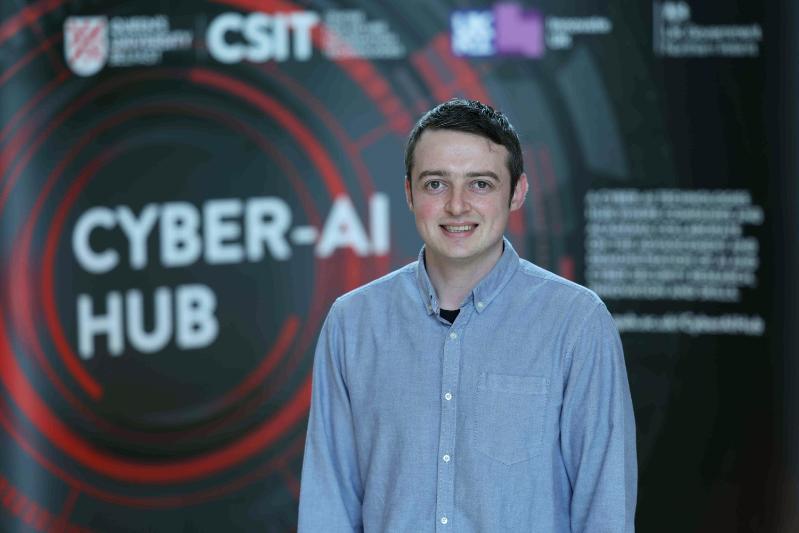The Life of a Cyber Security PhD Researcher | Ryan Bevin
We chatted to Ryan Bevin, a PhD student at Queen's University, who specialises in cyber security with a focus on risk assessment and future-proof security measures for emerging technologies about what drew him to a PhD.

Welcome Ryan, do you want to introduce yourself? What is the name of your research topic?
Hi there! My name is Ryan Bevin, and I'm studying for a PhD in Efficient RISC-V Chips with future-proof security. It's an exciting field that combines risk assessment with cutting-edge security measures for future technologies.
How did you first come across the opportunity to pursue a fully funded PhD, and what drew you to it?
Whenever I was studying for my undergrad, it was something I always wanted to do, but I decided to take a break at the end of my degree. Eventually, the opportunity arose again, and I decided to take the jump. It was a mix of timing and personal ambition.
Plus Belfast is still growing and developing as a city and more businesses are deciding to set up offices here. It's really put the spotlight on the city which is great!
What was it that interested you to cyber security in the first place?
The job market is always changing, and considering the current geopolitical landscape, cybersecurity is becoming an area that's really in demand. I wanted to learn new skills and develop in that area.
There are not a lot of people with this kind of skillset, like being able to look at offensive hacking and things like that, so it seemed like a great opportunity to learn it all.
Describe your experience transitioning from a master's programme to a PhD programme, particularly in terms of the differences in workload and independence.
The PhD is much more flexible compared to undergrad; you make your own time. You can start when you want, and finish when you want. As long as you get the work done, it's all on you.
Perhaps that's something that people find challenging. They think it's going to be rigid and structured like their undergrad but it's not the same.
What’s the community like when you’re a PhD Researcher at Queen’s University?
The community here is great. There's a lot of collaboration and intellectual stimulation. Networking is crucial; it's opened up a lot of doors for me.
What networking opportunities have you encountered during your PhD programme?
I've connected with various professionals and experts in cybersecurity through conferences, workshops, and collaborative projects. Networking has been invaluable for my growth in this field.
Walk us through a typical day as a PhD student in cyber security.
Every day is different. Sometimes we're in the office, other times we're on campus. It's up to us to structure our time. You make your timetable and have the opportunity to demonstrate certain modules.
What advice would you give to someone considering pursuing a PhD in cybersecurity?
It's definitely worth it. A PhD sets you apart compared to others. Cybersecurity is at the cutting edge of technology; it's going to set you apart when it comes to employability.
And because of the way the PhD works, you can go back and relearn things that you maybe didn't get the opportunity to learn at university, and you can relearn them and refresh all the stuff that you've forgotten.
Before starting your cybersecurity degree, what misconceptions did you have about the field?
One common misconception is that you need to be an expert in the field straight away. That's not true; you're given the chance to learn and develop your skills over time.
What has been the most unexpected aspect of your PhD experience in terms of day-to-day work and research processes?
The level of autonomy and self-direction required in PhD research was unexpected. You have to set and achieve research goals independently, which can be challenging yet rewarding.
We’re asking everyone to challenge a common cyber security myth. Could you explain why password security is so important?
Scams are not obvious. They're getting better all the time, and scammers are smart in what they're doing. They'll set up emails that mimic those from actual companies you have experience dealing with, making them enticing to click on. It's essential to remain vigilant and sceptical.
Media
If you want to find out more about PhD Opportunities in fields like this check out the current projects here